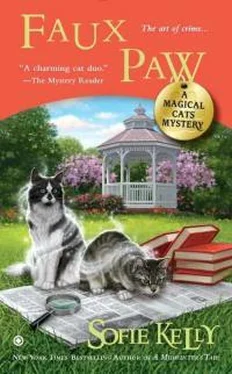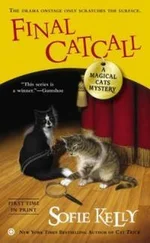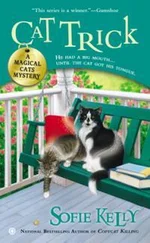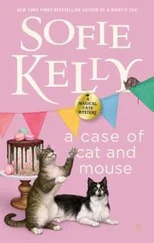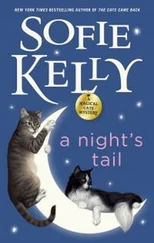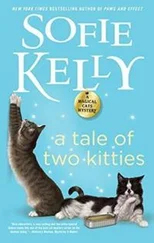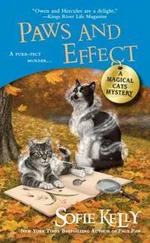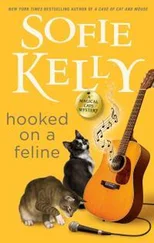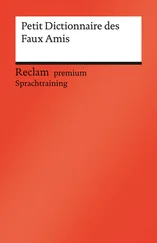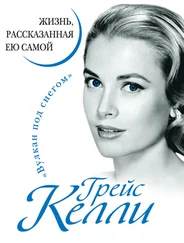“Because he used to razz me about dating Bigfoot since I was living in the wilderness, according to him.”
Roma smiled.
“I just remind him that I used to change his diapers,” I said. “That always shuts him up.”
“You and Ethan and Sara are still close,” she said, taking the pajamas from me. “Even with you here and them in Boston.”
“I miss them,” I said, “but even if I were still in Boston I probably wouldn’t see them any more than I do now. Ethan’s band has been on the road most of the last six months and Sara has worked on two films.”
“I wanted siblings when I was younger,” Roma said. “Then I’d spend a month with my cousins in the summertime and being an only child didn’t seem so bad.”
“When I found out I was going to have a baby brother and sister, all I felt was mortified. My parents were divorced and there was the undeniable proof that they’d been having sex.” I smiled at the memory of my melodramatic teenage self, deciding that I could never be seen in public again with my mother and father. “And then they brought Ethan and Sara home from the hospital and my mother let me hold them for the first time,” I said.
“And you bonded with them,” Roma said, holding the Bigfoot pajamas to her chest and folding her arms over them.
“Not even close,” I said. “Ethan spit up all over the front of my favorite shirt and at the exact same time Sara did the same on the back of it.” I grinned and raised my eyebrows. “They’ve always been competitive.”
It was good to see Roma laugh. “So what changed?” she asked.
“I’d get up in the middle of the night and sneak in to look at them. I was convinced they’d ruined my life, but I couldn’t stay away from them, either. One night Ethan was awake and I just started talking to him. Then Sara woke up, too. As long as I was talking they didn’t cry. About a week later Mom got up to check on them and found the three of us downstairs watching one of those really bad Japanese Godzilla movies with subtitles on TV.”
I smiled at her. “And I’m going to stop talking,” I said. “Toothbrush and toothpaste in the cupboard on the second shelf. If you need anything else, just yell.”
She nodded. “I will.”
I cleaned up the kitchen while Roma was in the bathtub; then I had a bath myself, sinking down in the water until it was up to my chin. I wondered how Eddie was. I wondered if there was any way Roma would change her mind.
I was sitting on the edge of the bed brushing my hair when my cell phone buzzed. It was Marcus.
“Hi,” he said. “You weren’t sleeping, were you?”
“No,” I said.
“How’s Roma?” he asked.
“Sad, mostly,” I said, standing up and walking over to set the brush on my dresser. “I convinced her to stay here for tonight.”
“I thought you might.”
“How’s Eddie?”
Marcus exhaled softly. “Pretty much the same as Roma. He’s already on his way back to St. Paul. He left about an hour ago.”
I yawned. “I’m sorry,” I said. “It’s been a long day.”
“Go to bed. I’ll talk to you in the morning.” I could hear the smile in his voice. “Good night.”
“Good night,” I said.
I woke up at five minutes after two, unsure of why I was awake. I padded out into the hallway in bare feet. The door to the spare bedroom was open. Roma wasn’t in bed.
I was halfway down the stairs when I heard voices. Then I realized it was just one voice, Roma’s. I crept silently to the bottom of the steps and moved across the living room floor until I could see into the kitchen. Roma was at the table, her back to the doorway, one foot up on her chair with her chin resting on her bent knee and her arms wrapped around her leg. Hercules was sitting at her feet.
She was talking to him. And he was listening, his head tilted a bit to one side. It occurred to me that maybe Roma had found exactly the right “person” to talk to who would listen without judgment. I took several steps backward and then I went silently back upstairs.
I drove Roma home after breakfast, moving Marcus’s SUV out onto the street so I could back the truck out of my driveway. When I got back it was gone and there was a brown paper bag propped on the doorknob of the back door. There was a smiley face drawn on the front with a black marker and one of Eric’s cinnamon rolls inside.
Rebecca called a few minutes after nine o’clock. “I have some information for you,” she said. “Do you have a few minutes?”
“I do,” I said. “Would you like to come over and tell me in person? I have coffee, tea and”—I leaned sideways to look at the counter, realizing as I did that Roma and I had eaten the last of the blueberry scones and I’d demolished Marcus’s cinnamon roll—“sardine cat crackers.”
Rebecca laughed. “As . . . tempting as that sounds, I’m not home. I’m actually downtown in Everett’s pied-à-terre.”
“Ahh, romantic,” I teased.
“Yes, it was,” she said a saucy lilt to her voice.
I could imagine her smile and the twinkle in her eyes. Rebecca and Everett could make the most cynical person out there believe in love and happily ever after.
“So what did you find out?” I asked, pulling my feet up so I was sitting cross-legged on the chair.
“The Holmeses are not the happy family they seemed to be on the outside,” she said.
“All happy families are alike; each unhappy family is unhappy in its own way,” I said.
“Exactly,” Rebecca said. “I think Tolstoy had that right, although I think the unhappy families are that way for the same few reasons.”
“What do you think the reasons were in this case?”
“I think there was only one: money.”
I reached for my coffee. “Charles Holmes’s art collection.”
“Yes. I talked to the wife of one of Everett’s business associates. Clara told me that Marshall Holmes tried to sue his sister over the collection. He thought Diana had used undue influence on their father.”
“You said, ‘tried to sue,’” I said.
“The case was dismissed,” she said. “It seems that before he died Charles had decided to have all the artwork appraised with the idea that he’d divide the collection equally between Marshall and Diana. He died before anything really got started, so the way his will was written, they shared the whole collection.”
“I can see how that caused problems,” I said. I took a sip of my coffee.
“It seems there was enough evidence to show what Charles’s intentions had been,” she said. “Even though Marshall’s lawsuit was dismissed, the judge ordered a complete appraisal of the art at the estate’s expense with the goal being to divide the collection as fairly as possible.”
“So shouldn’t that have solved the problem?”
“Well, dear, you’d think it would,” Rebecca said. “But from what I could gather, it hasn’t. First of all, the appraisal process takes time, not to mention, some of the artwork is out on loan in various exhibits at the moment. And both Marshall and Diana have some limited veto over who’s going to do the actual assessment.”
I took another sip of my coffee and set the cup on the table. “They haven’t started yet, have they?” I asked.
“The only piece that’s been valued is the Weston drawing,” she said. “Charles had that evaluated right before his death.” She made a sound of annoyance. “Both of those young people are very childish in their behavior. On the other hand, this really is something Charles should have settled long before he died.”
I sensed there was a similarity between Marshall and Diana Holmes wrangling over the Weston drawing and Owen and Hercules bickering about the grackle. Nobody wanted to give in first.
Читать дальше
